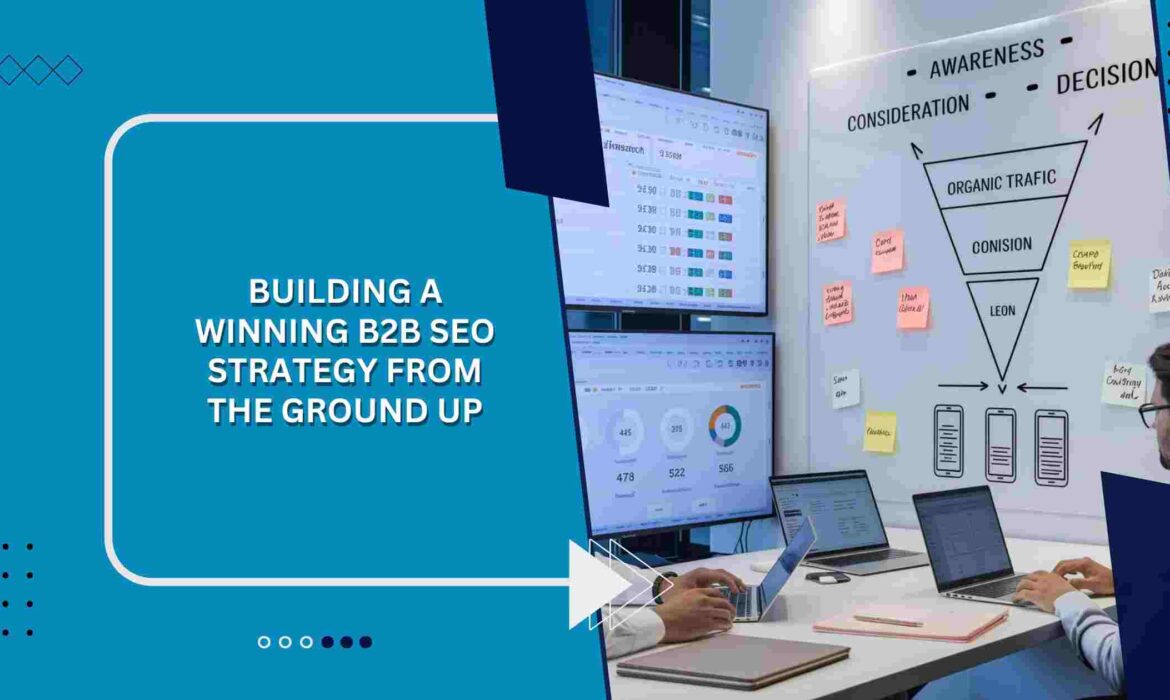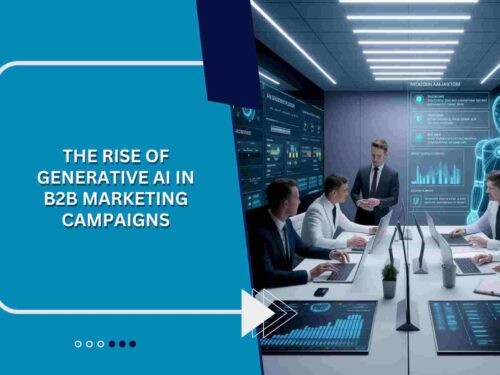In 2025, competition in the B2B digital landscape is more aggressive than ever. Companies aren’t just aiming for visibility they’re fighting for authority, credibility, and trust. And that’s where a well-structured B2B SEO strategy becomes your most powerful tool. Unlike B2C, where emotional triggers often drive consumer behavior, B2B marketing requires nurturing longer buying cycles, deeper trust, and complex decision-making. Search engine optimization is the backbone of that entire journey.
A winning B2B SEO strategy goes far beyond keywords. It’s about aligning your content with the exact search intent of professionals, understanding the buyer journey from awareness to decision, and optimizing every touchpoint with technical precision. Whether you’re launching a startup or reworking a legacy business model, building your B2B SEO strategy from the ground up ensures scalability, consistency, and sustained lead generation.
Understanding the Core of B2B SEO
At its heart, B2B SEO focuses on driving targeted organic traffic to your website by optimizing content for industry-specific queries that your business buyers are searching for. These buyers often include procurement heads, executives, IT teams, or decision-makers with very particular needs. Unlike casual consumers, they don’t browse aimlessly they research with purpose.
Your SEO content must speak their language. That means integrating technical accuracy, use-case-driven insights, and ROI-based messaging. It’s not just about ranking; it’s about relevance. Each piece of content should be a stepping stone toward solving a specific business pain point. This makes B2B SEO not only a traffic strategy but a trust-building mechanism as well.
Laying the Technical Foundation
Before crafting content or chasing backlinks, it’s essential to ensure that your website’s technical SEO is bulletproof. Search engines must be able to crawl, index, and understand your content without friction. This starts with optimizing site speed, ensuring mobile responsiveness, and building a clean site architecture. URLs should be structured, canonical tags set properly, and broken links eliminated.
Another important element is schema markup. This helps search engines understand the context of your content whether it’s a product, a review, or a business service. For B2B SEO, this added layer of clarity can improve visibility in rich snippets, making your listing stand out. Implementing XML sitemaps and robot.txt directives ensures search engines prioritize the right pages, giving your site a solid technical SEO backbone.
Conducting Intent-Driven Keyword Research
A high-performing B2B SEO strategy always begins with robust keyword research. But here’s the catch B2B keyword targeting isn’t just about high search volumes. It’s about intent. A keyword like “AI-powered CRM tools for SaaS companies” may not have millions of monthly searches, but its specificity indicates strong buying intent. That’s gold in B2B marketing.
Using platforms like Semrush, Ahrefs, or Google’s Keyword Planner, identify keywords with transactional or informational intent. Focus on long-tail keywords, comparison queries (e.g., “best B2B email automation tool”), and problem-based searches. These are closer to the buying decision. Segment your keywords across funnel stages from awareness to evaluation and map them to landing pages, blogs, and product content accordingly.
Crafting High-Value, Long-Form Content
Content is the anchor of every B2B SEO strategy. But this isn’t about publishing generic 500-word blog posts every week. Your goal is to become a go-to knowledge hub in your niche. That means writing long-form, insightful, data-backed content that solves complex problems. Think whitepapers, in-depth guides, use-case blogs, case studies, and industry trend reports.
Start with pillar pages that broadly cover core services or industry challenges, and support them with cluster content targeting specific subtopics. For example, a pillar page on “Cloud Migration for Enterprises” can link to sub-blogs like “How to Ensure Data Security in Cloud Migration” or “Cost Optimization Strategies for Enterprise Cloud.”
Use storytelling frameworks and real-world examples to make your content both educational and engaging. Always include clear CTAs that encourage micro-conversions downloads, form fills, or newsletter signups.
Optimizing for On-Page SEO Elements
Even the best-written content won’t perform without solid on-page optimization. Every page in your B2B SEO ecosystem should follow a structured format: proper header tags (H1, H2, H3), keyword placement in the title, meta descriptions, URLs, and image alt tags. The primary keyword should be included naturally throughout the text, aiming for a keyword density of around 2% without sounding robotic.
Internal linking is another vital on-page SEO tactic. Guide users from one topic to another using contextual links, keeping them longer on your site and signaling content depth to search engines. External links to high-authority sources also lend credibility and improve relevance signals. Don’t forget to update old posts regularly to maintain freshness especially if you’re discussing rapidly evolving topics like AI, blockchain, or industry regulations.
Building High-Quality Backlinks
Backlinks are one of the most powerful ranking signals in the B2B SEO world, but not all backlinks are equal. A few high-authority, industry-relevant links will outperform dozens of random directory submissions. Focus on building relationships with industry blogs, media publications, and thought leaders.
Guest posting is still a powerful way to earn backlinks while positioning your brand as a thought leader. Participating in industry roundups, writing LinkedIn Pulse articles, and submitting insights to professional forums like Reddit (in business-related subreddits) or Quora can also drive link equity. Additionally, publishing original research, infographics, or interactive tools gives other websites a reason to link back to your content.
Leveraging Local and Niche SEO
If your B2B company serves specific regions or verticals, local and niche B2B SEO should be part of your playbook. Optimize your Google Business Profile and ensure that your NAP (Name, Address, Phone Number) information is consistent across directories. Create location-specific landing pages targeting regional keywords like “Managed IT Services in Singapore” or “Logistics Software Providers in Texas.”
For niche targeting, join directories or associations within your industry. If you’re a SaaS provider for the legal sector, getting listed on legal tech aggregators or forums not only builds backlinks but also drives highly relevant traffic. This kind of hyper-targeted SEO enhances both relevance and conversion rates.
Monitoring, Measuring, and Iterating
A B2B SEO strategy is never truly done it evolves. Use tools like Google Analytics 4, Google Search Console, and Ahrefs to track your most important metrics: organic traffic, bounce rate, average session duration, conversion rates, and keyword rankings. Set KPIs for both traffic and lead generation.
Don’t just measure; interpret. For instance, if a high-ranking page has a low conversion rate, maybe the content doesn’t align with the user’s intent. If bounce rates are high, your content might not be engaging or your site speed could be an issue. Use heatmaps (like Hotjar) to understand user behavior, and keep running A/B tests on headlines, CTAs, and layouts. The goal is to constantly optimize what works and eliminate what doesn’t.
Integrating SEO with Sales and Marketing
B2B SEO should not operate in isolation. It must integrate seamlessly with your overall sales and marketing strategy. Collaborate with sales teams to understand customer pain points and objections they’re a goldmine for keyword ideas. Sync with content marketing to ensure alignment between SEO and brand voice.
Also, ensure SEO insights are incorporated into your email campaigns, paid ads, and webinar topics. SEO data can inform which topics resonate most, which can then be repurposed into multiple channels. This integrated approach creates a flywheel effect, where every effort strengthens the others.
Contact Acceligize for tailored demand generation and SEO solutions built for your B2B success.




